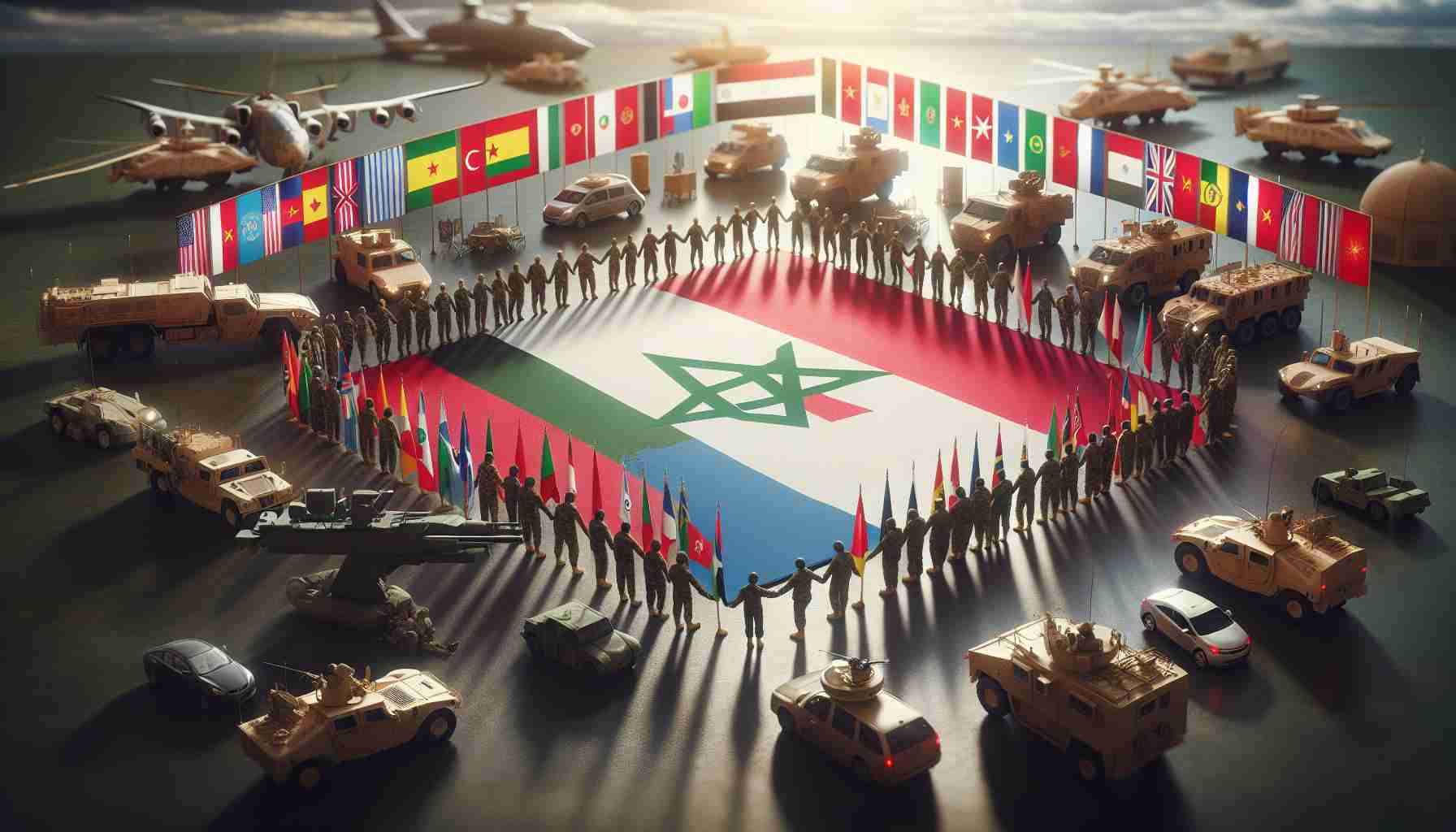Morocco’s publication, the Royal Armed Forces magazine, in its latest issue, throws the spotlight on Morocco’s strengthening military alliances, particularly emphasizing the long-standing and evolving relationship with the United States following the visit by U.S. AFRICOM Commander General Michael Langley in February.
The magazine narrates that General Langley’s visit entailed a strategic meeting with the Inspector General of the Royal Armed Forces, Southern Zone Commander, General Mohamed Bereiz (also known as Hammou). The dialogue revolved around reinforcing the historic bilateral military relations and the strong ties that unite both nations’ armed forces.
Moreover, the documentation chronicles robust discussions on military cooperation and joint training exercises. It points out that Langley acclaimed Morocco’s significant role in ensuring regional security during his lecture at the Royal College of Military Studies.
Highlighting the importance of professional military training, Langley praised the Royal Armed Forces’ efforts in training and forming African armies. His insights offered to Moroccan officer cadets were drawn from his extensive experience.
Further, the magazine also notes a visit by Jennifer Zakriski, Deputy Assistant Secretary of Defense for African Affairs, reiterating the enduring strength of Moroccan-American military cooperation, guided by a roadmap spanning 2020 to 2030. This dialogue focused on cooperative avenues and mutual concerns, confirming the fortified partnership between Washington and Rabat.
Additionally, the magazine features the visit of Belgian Chief of Defense, Admiral Michel Hofman, to Morocco, underscoring a robust military partnership that took flight in 1992.
Conversations of mutual military capabilities and historical relations were also captured during the encounters between the Moroccan Inspector General and the Gambian counterpart, as well as the hosting of a Nigerian military delegation seeking to explore training opportunities within the Royal Armed Forces.
A cornerstone topic for the magazine was the transformative role of artificial intelligence (AI) in defense, mapping out its varying impacts in the military sector. Colonel Major Lahsen Hajjami, Director of the Royal College of Military Studies, stressed the pivotal role of AI in advancing the defense sector. He also acknowledged the commitment of the Supreme Commander of the Royal Armed Forces, King Mohammed VI, towards achieving technological progress beneficial to Moroccan forces. The magazine conveyed an active engagement in multidimensional discussions on AI, involving both international and Moroccan experts, through numerous intellectual seminars.
Key Questions and Answers:
Q1: What are the goals of Morocco’s military partnerships?
A1: The goals of Morocco’s military partnerships include strengthening bilateral ties, enhancing military cooperation, engaging in joint training exercises, and contributing to regional security. These partnerships aim to promote professional military training and technological advancement within the Moroccan defense sector.
Q2: What challenges does Morocco face in reinforcing its military ties?
A2: One of the key challenges Morocco may encounter is balancing international partnerships while maintaining sovereignty and addressing domestic concerns. Additionally, managing regional geopolitical dynamics, especially contentious issues in the Maghreb and Sahel regions, can be complex. Moreover, the integration of emerging technologies like AI into its military protocols requires strategic planning and significant investment.
Q3: Are there any controversies associated with Morocco’s military partnerships?
A3: Military partnerships often come with their share of controversies. For Morocco, this may revolve around arms deals or military cooperation with certain countries that could be contentious to neighboring nations or other international players.
Advantages and Disadvantages:
Advantages:
– Strengthening military ties can enhance Morocco’s regional security and counterterrorism capabilities.
– Joint training exercises and cooperation in military technology, such as AI, can modernize the Royal Armed Forces.
– International defense partnerships may lead to economic benefits, including job creation in defense-related industries.
– Military collaborations can also foster diplomatic relations and geopolitical influence for Morocco.
Disadvantages:
– Intensified military collaboration could lead to regional arms races and escalate tensions with neighboring countries, adversely affecting regional stability.
– Overreliance on foreign military equipment and training may impinge upon the autonomy of the Moroccan military.
– Defense spending on international partnerships and technological advancements can be substantial, potentially diverting funds from other critical sectors.
Suggested Related Links:
For more information on regional security and defense matters, the following links may be helpful:
– United States Africa Command (AFRICOM)
– United States Department of Defense
– North Atlantic Treaty Organization (NATO)
Please note that due to the dynamic nature of the internet, it is possible for web addresses to change or become outdated after the time of writing this content. Ensure to verify any URLs before using them.

